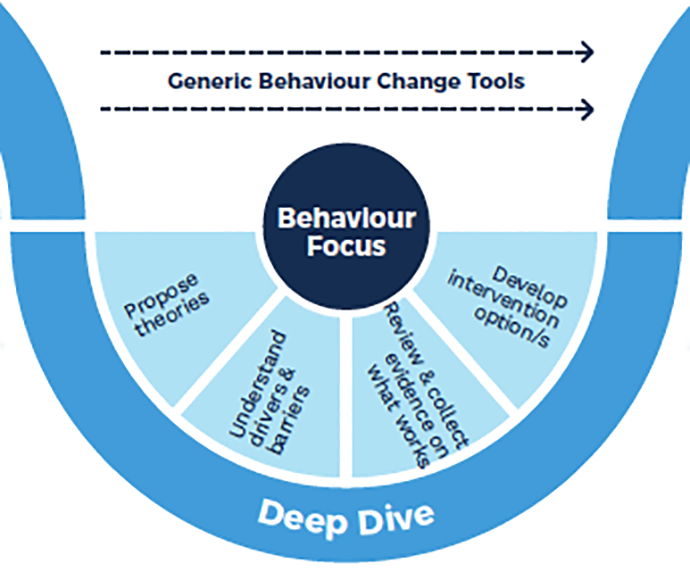Stakeholder profile: BehaviourWorks Australia
The EPA has partnered with BehaviourWorks Australia to understand behaviour change. Australians throw away $5.2 billion of food per year, equating to about $239 per person. In NSW alone, we throw away 800,000 tonnes of edible food each year. That’s nearly $4000 worth of food per household.

An overview of the BehaviourWorks Method
NSW EPA
While targeting behaviours such as meal planning, shopping to a list, and using left-overs has a positive effect in reducing household food waste, it is unclear exactly how this inspires behaviour change or why some interventions are more successful than others.
To help answer these questions, the NSW EPA has partnered with BehaviourWorks Australia (BWA), a leading behaviour change research enterprise within the Monash Sustainable Development Institute at Monash University. The BWA method consist of three overarching themes: exploration, deep dive and application. This is a proven process to identify which behaviour change approaches are most likely to work.
BWA currently advises and assists EPA teams that work on illegal dumping, recycling, pest control and construction and demolition waste. In 2017, a key project has been BWA’s work with the Love Food Hate Waste team who are committed to untangling the complex world of food waste.
Food waste behaviours and practices are largely context driven, and are also habitual and automatic. BWA has identified a great opportunity for Love Food Hate Waste to run a series of carefully designed ‘experiments’ with NSW households to test the actual impact of different food waste reduction behaviours, and the circumstances in which they might be most impactful.
For more information visit BehaviourWorks Australia.

